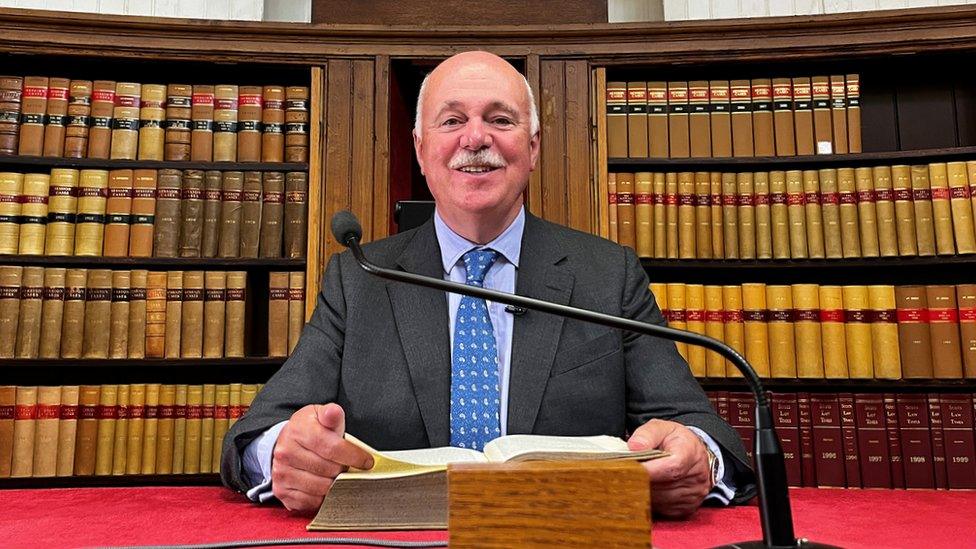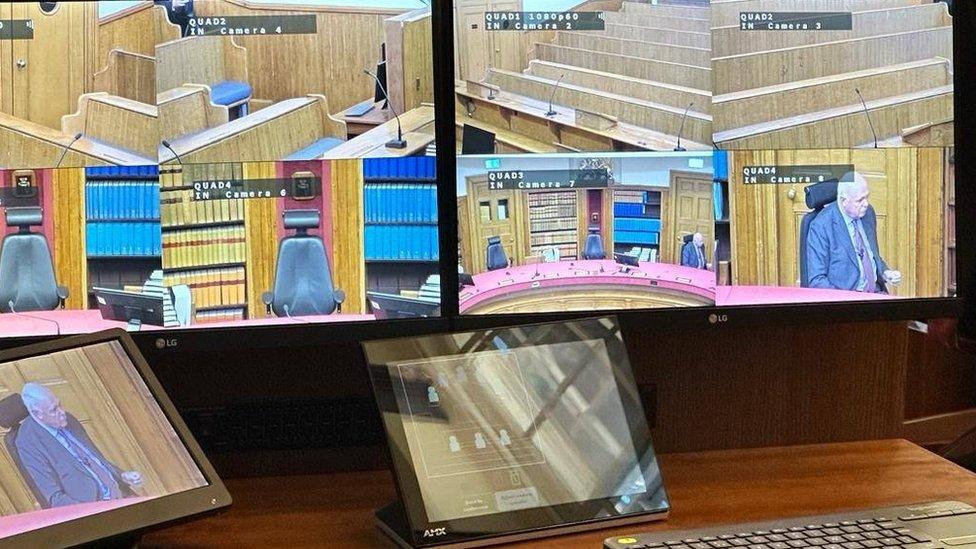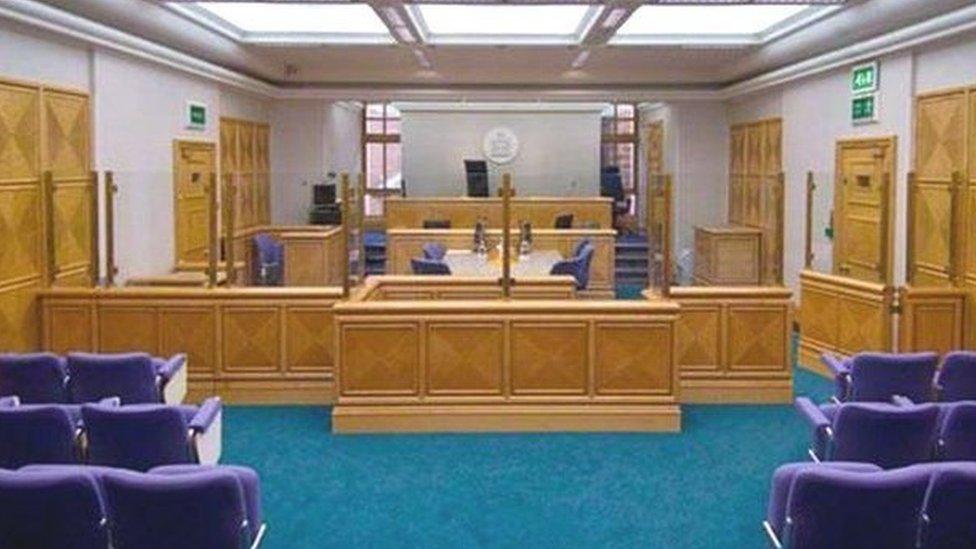Court of Session streaming service goes live
- Published

Lord Pentland believes the streaming service could be extended to other courts in future
One of Scotland's oldest courts is introducing a live streaming service to increase public access to justice.
Audio-visual equipment has been installed in a Georgian courtroom where the Inner House of the Court of Session hears civil appeals.
The first case, to be live streamed on Tuesday, involves a dispute over a construction contract.
But the court, which was founded in the 16th Century, often rules on issues of national interest.
In 2019 it found that Boris Johnson's suspension of the UK Parliament was unlawful after a challenge by a cross-party group of politicians.
Two years later, it dismissed a case brought by a political campaigner over whether the Scottish Parliament could unilaterally hold an independence referendum.
And later this year, at the request of the Scottish government, the court will examine the UK government's decision to stop the controversial Gender Recognition Reform (Scotland) Bill from going forward to Royal Assent.
Established with Papal permission by King James V in 1532, the Court of Session is the Royal Court of Scotland and hears civil cases in the name of King Charles III.
Live streaming was introduced in Scottish courts during the Covid pandemic to allow legal teams and the media access to cases while the court buildings were closed.
Since then a small number of cases have been live streamed for the general public to watch.
The new system - called "Court of Session Live" - will now introduce regular live streaming of most cases dealt with by the Inner House.
It will come from the ornate 19th Century Court 1 at Parliament House in Edinburgh.

A camera operator will oversee the audio and video feeds from the court
Inner House judge Lord Pentland who is leading the project said: "This is an exciting initiative for the courts and an important step in ensuring justice is seen to be done in a manner fit for a modern court system."
Not all cases will be live streamed and the Inner House's remit means that civil proofs - trials which hear evidence from witnesses - will not feature.
Much of its business can be rather dry and complex but some of the live streams - such as the gender recognition reform case - will attract big audiences.
Lord Pentland and his colleagues hope the live stream will be accessed by the public, media and academics.
"There may be some hearings that it's inappropriate to live stream for reasons of witness confidentiality or the involvement of children," he said.
"The courts are not entertainment and that's something we must recognise fully.
"This court hears some of the most important cases in the country, sometimes involving questions of political or constitutional nature, and what we are doing is giving the public the opportunity to see them as they unfold in the courtroom."
Lord Pentland said it was possible the project could be extended in the future.
"We will monitor the progress of this in the civil courts and see what lessons we can learn and whether it's appropriate to extend it to criminal appeals".
Details on forthcoming cases and the issues involved will be published in advance by the Scottish Courts and Tribunal Service.
- Published21 April 2020
